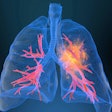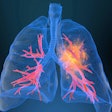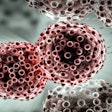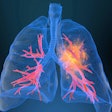Dear LabPulse Member,
Today's features include a report about five new Choosing Wisely recommendations from the American Society for Clinical Pathology (ASCP) on the appropriate ordering of lab tests, released ahead of its annual meeting, which kicks off September 11 in Phoenix. In its latest recommendations, the ASCP addresses appropriate follow-up for positive hepatitis C virus results and testing for gastrointestinal stool pathogens in hospitalized patients, among other hot topics.
In other association news, the College of American Pathologists (CAP) released new draft recommendations on molecular testing for diffuse gliomas, a common group of brain cancers. Dr. Daniel J. Brat, PhD, who led CAP's effort, talked to LabPulse.com about why the recommendations are needed. A comment period on the guideline is open through September 30.
Blood tests for cancer dominated clinical news in the past week. Today, Personal Genome Diagnostics published results from a study evaluating a blood test for assessing microsatellite instability and tumor mutational burden biomarkers in healthy participants and in a small cohort of patients with a range of cancers. The data show the potential for using these two biomarkers in predicting response to immunotherapies, researchers reported in Clinical Cancer Research, a journal of the American Association for Cancer Research.
However, data presented on September 8 at the World Conference on Lung Cancer (WCLC) in Barcelona, Spain, included two studies of the leading immunotherapy pembrolizumab (Keytruda) that did not find an association between tumor mutational burden and clinical outcomes.
On September 9, WCLC attendees heard about study findings that indicate blood testing complements imaging studies for lung cancer screening. Investigators in the Early Detection of Cancer of the Lung Scotland (ECLS) study reported that adding the EarlyCDT-Lung test (Oncimmune) resulted in higher rates of detection of early-stage cancers. The blood test had high specificity, which could help lower the false-positive rate associated with screening, as well as the cancer detection rate, the researchers reported.



















